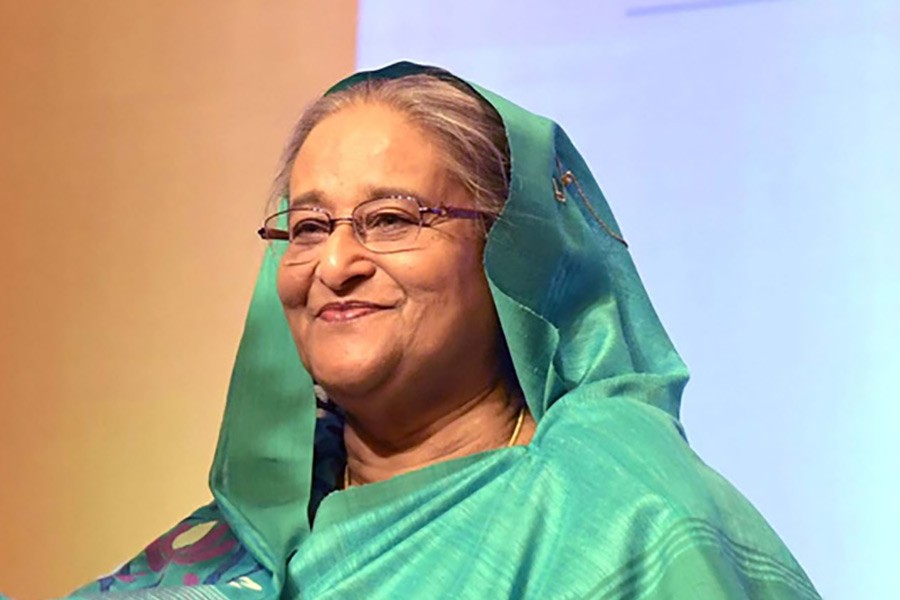Developed, resource-rich countries such as Germany must help finance climate-resilience initiatives as climate change has mainly been caused and exacerbated by them, says Prime Minister Sheikh Hasina.
Natural disasters linked to climate change are threatening the lives of people and of future generations in Bangladesh and many other climate vulnerable countries, Hasina said in an opinion piece published in The Berlin Pulse, a guide to German foreign policy, according to bdnews24.com.
The piece, titled ‘Climate Change Through the Lens of Bangladesh’ lays out the issues faced by countries in the Climate Vulnerable Forum (CVF) such as Bangladesh and the steps the government is taking to combat it.
“As Bangladesh is located at the end of the drainage basin of mighty Ganges-Brahmaputra-Meghna River systems, it is prone to climate-related disasters,” she wrote.
“An increasing monsoon will lead to variability in local levels of rainfall and to frequent and intermittent flooding events. As a result, the coastal zone of Bangladesh will be highly susceptible to inundation and salinity, which will most likely hamper agricultural production and affect food security.”
The ‘impending doom’ of these climate changes has pushed the government to enhance infrastructure, institutional capacity and financial preparedness to help vulnerable communities adapt and manage risk, she said.
The Bangladesh government has formed the Mujib Climate Prosperity Plan to further invest in measures to adapt to climate change, the prime minister said.
“Launched in July this year, it is the first plan of a Climate Vulnerable Forum country with a strategic investment framework to mobilise financing through international cooperation to implement climate-resilience initiatives. Germany as a resource-rich country may play an important role in this regard.”
The programme focuses on renewable energy, energy storage infrastructure, modernising the power grid and emissions trading, Hasina said. It will also attempt to future-proof Bangladesh’s industries and protect business while developing climate-resilient, nature-based agriculture, environment-friendly transport and climate-resilient wellbeing programmes.
The prime minister also touted Bangladesh’s achievements in economic growth despite numerous challenges.
“[T]he country’s economic growth trajectory has maintained smooth momentum even amid the prevailing COVID-19 crisis and despite a rising population, limited land resources and frequent natural disasters,” she wrote.
Bangladesh has nearly tripled annual rice production between 1971 and 2020 and built sea dykes, cyclone shelters and coastal plantations to guard against natural disasters, she said.
Despite these successes, Bangladesh needs support in finding a sustainable way to develop amidst the challenges posed by climate change, the prime minister added.
“Achieving these transformations at the pace and scale required will not be possible without the alignment and collaboration of all nations. Thus, Bangladesh calls for collaborative and coordinated actions to develop a global consortium that includes developed and developing countries.”
Global communities can make absolute emissions reduction targets, develop a shared vision and scale up successful initiatives to reduce disaster risk and adapt to climate change, she said.
Developing nations must also act responsibly to ensure climate change does not worsen and Bangladesh can serve as a positive example of this, the prime minister added.


